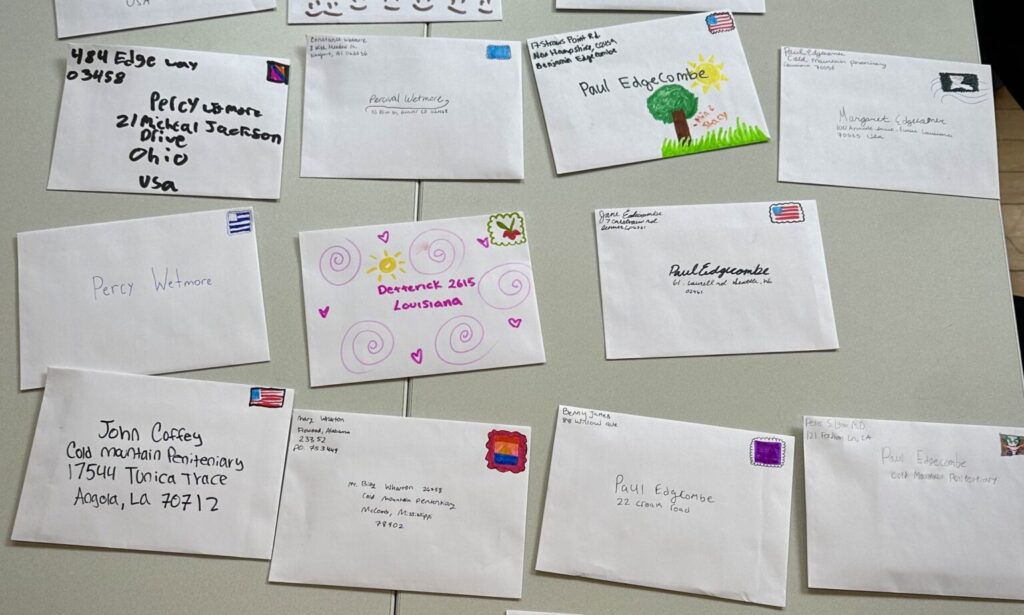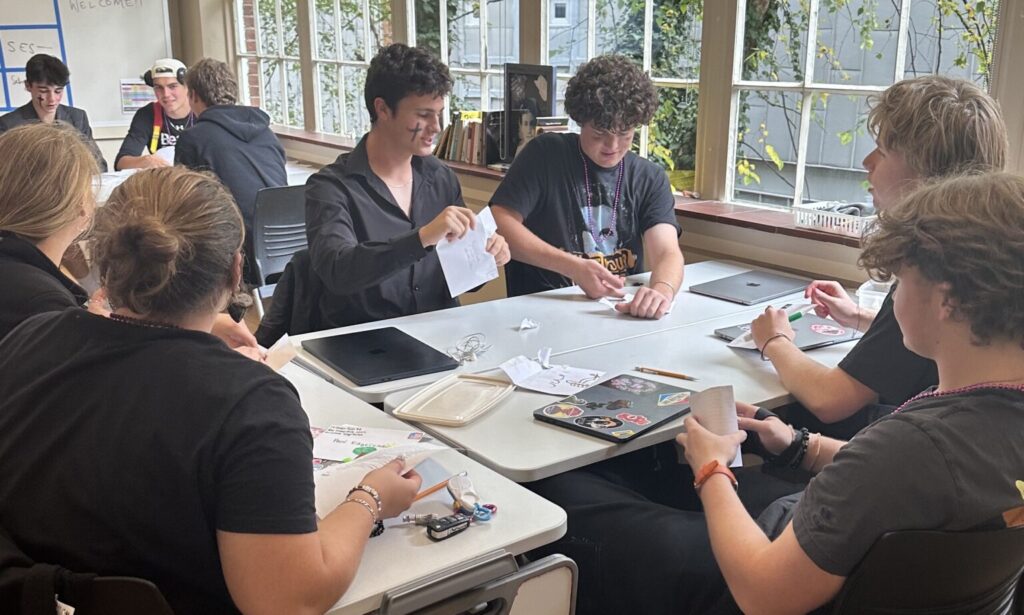Class: Great Books
Grades: Upper School (English elective)
Teacher: Lydia Fash
Great Books is an Upper School English elective that takes a unique approach to exploring literature; students select, campaign, and vote for what novels they wish to read. This term, students analyzed the characters of the chosen novel–Stephen King’s The Green Mile–by writing letters in the universe of the story.
We were tasked with writing letters to characters in the book either from our own perspective or from the perspective of a character. We were given the creative freedom to do anything.
-Kate LaGatta ’25

The letter-writing assignment allowed students to get creative with how they think about The Green Mile. After choosing a character to write to, students combed through the text to find details about their chosen character’s motivations, identities, and history. As teacher Lydia Fash explains, “Stephen King originally published the novel in 6 parts, with a month gap between each part. This strategy allowed the reader to feel more like the characters were in real-time. . . the letter project similarly allowed us to ‘live’ with the characters.”
Students capitalized on the creative freedom of the assignment by thinking outside of the box. Kate LaGatta ’25 elected to write as the sister of an incarcerated character in the story. “I thought that writing as a family member of someone on death row would be interesting,” Kate says. “I had to look deeper into his backstory and look into his interactions to understand his character.” Another student, Owen Hotra ’25, decided to insert himself into the story by imagining himself as a government worker in the universe of the book. “I wrote as someone who had been watching what was going on in the prison but then got invested. I was getting really into it.”

After signing and sealing their work, students swapped letters so they could see how others approached the assignment. Students also penned reflections on their work, which allowed them to expand upon their letters with evidence from the text. As Molly Schwechheimer ’25 shares, “I wrote a lot about mental health in prisons and prison conditions. In my reflection, I wanted to highlight my bigger ideas about the book.” Other topics explored by students include the death penalty, trauma, and the Great Depression.
Leveraging their deeper understanding of The Green Mile’s characterization, students in Great Books will practice developing essays in the weeks to come.
More about this course: When was the last time you were responsible for picking your reading for a course? At the beginning of this class, students generate a list of books they want to read, and then campaign for their favorite; after the campaign season ends, students vote, and several books will win. The term is spent reading the winning books, examining them for character, theme, structure, style, and message. How does choosing the text intersect with investment in the reading? Is the text a great book? Ultimately, students decide whether the books deserve spots on the shelf and how they go about choosing their next read. Students also respond to the reading in various forms of writing, class discussions, projects, and presentations.
Previous books include: 1984, Room, Lolita, Brave New World, Catch 22, Adventures of Huckleberry Finn, Lord of the Flies, Scarlet Letter, On the Road, The Kite Runner, Harry Potter and the Sorcerer’s Stone, Gone Girl, and Fight Club.